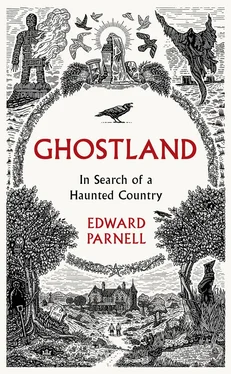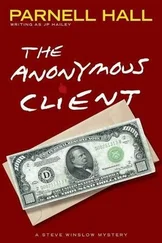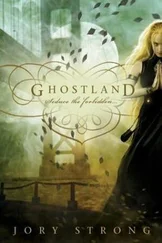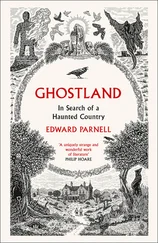Never confining himself to poetry, de la Mare went on to write two further novels including The Return , which deals with supernatural possession, as well as critical works about Lewis Carroll and the dashing nearly-poet of the Great War, Rupert Brooke. De la Mare and Brooke had met in 1912 when they both contributed to an important anthology of ‘Georgian’ poetry (the grouping’s name referred to King George V, who came to the throne after Edward VII, in 1910). Following Brooke’s death on the Aegean island of Skyros – fittingly, perhaps, on St George’s Day 1915 – de la Mare was surprised to find himself named as a beneficiary in the younger man’s will, sharing future royalties with two other Georgians, Wilfrid Wilson Gibson and Lascelles Abercrombie.**
Walter de la Mare wrote a large body of short fiction, both for children and adults, among which are a sizeable number of exquisitely crafted and highly atmospheric stories of the uncanny. Interestingly, M. R. James was an acquaintance and fan of de la Mare, whose tales certainly do not suffer from the ‘blatancy’ of which the elder man disapproved. They are largely subtle works, their horrors elusive – illusive even: often, the reader is unsure if there are any actual horrors. In, for instance, ‘Missing’ – a tale of 1920s London (published in 1926) that captures the oppressiveness of the ensuing heatwave as vividly as L. P. Hartley does the scorched summer of The Go-Between – we are left little the wiser as to what the mysterious Bleet, up for the day from the country to escape the boiling temperatures, is bleating on about to the unwittingly accosted first-person narrator. There might have been a murder – there has, at least, been an inquiry into the disappearance of Miss Dutton, a lodger at the house of Bleet and his sister – but beyond that little is clear; De la Mare, it could be said, deliberately makes sure that much is ‘missing’. There are no obvious manifestations of the supernatural, but the story’s atmosphere is disconcerting, with the odious Bleet talking at the narrator as if he might as well not be there.
In ‘Crewe’, another stranger accosts a presumably different narrator – on this occasion in the first-class waiting room at Crewe railway station. Here, the interloper, an old man in an oversized coat – a country-house servant going by the name of Blake – proceeds to deliver a narrative full of gossip, rumour and betrayal, which sets off a chain of events involving a vengeful, animated object from beyond the grave. No less an authority than the Welsh writer Arthur Machen was impressed by the story, commenting in his review for the New Statesman that ‘in that tale there is a scarecrow which is luminous, but not in the light of the sun – a hideous terror.’
There were scarecrows in the fields around my grandmother’s house too. And straw bales that I would haul about and arrange into forts with the handful of other local children. But it was always the beguiling woods that held the greatest appeal, where I wanted most to walk. Sometimes we would, the whole extended family, go together, Uncle Gordon and me pressing ahead. He still lives in that same cottage, and laughed when I saw him last a couple of years ago, recalling how I always led us along the most tricky paths; I was able to duck beneath the branches of blackthorns while he would be skewered on their spines. The swathes of stinging nettles were far easier for our sticks to deal with – we could bash them down, uncovering half-forgotten tracks that reached in front of us like the ghost road in Rudyard Kipling’s ‘The Way through the Woods’:
You will hear the beat of a horse’s feet
And the swish of a skirt in the dew,
Steadily cantering through
The misty solitudes,
As though they perfectly knew
The old lost road through the woods …
But there is no road through the woods.
The eerily atmospheric poem prefaces the short story ‘Marklake Witches’ in Kipling’s 1910 Rewards and Fairies , a collection of stories grouped together like those in its predecessor Puck of Pook’s Hill , with each tale fronted by a related verse. In the books, the eponymous sprite from Shakespeare’s A Midsummer Night’s Dream is roused to spin yarns, with the help of characters summoned from the past, to bring alive a history of England – or at least a version of it that Kipling has fashioned – to two Sussex children, Una and Dan. ‘I belong here, you see, and I have been mixed up with people all my days,’ says the now aged Puck as he introduces himself.††
‘Marklake Witches’ is itself a story of no little poignancy, in which Una meets Philadelphia Bucksteed, the high-spirited, sixteen-year-old daughter of a Napoleonic-era squire. We learn of the girl’s irritating cough, and the illicit efforts her nurse makes to enlist the local ‘witch-mater’ to cure her, aided by an affable French prisoner of war who is something of a medical innovator and turns out to be René Laennec, the inventor of the stethoscope. As adult readers (I’m not sure the subtext would be obvious to a child), the tragedy is that we know the vibrant, thankfully unaware, Philadelphia is dying from consumption – which is why her after-dinner rendition of ‘I have given my heart to a flower’ so overwhelms her father and a visiting general. On being introduced to her new Napoleonic friend, the Edwardian Una comments about Marklake: ‘I like all those funny little roads that don’t lead anywhere.’ Given that the poem informs us in its opening line that the woodland way was shut ‘seventy years ago’, we can deduce that the estate of Philadelphia’s father has long gone, like the teenage girl whose tale is being told by her swish-skirted shade.
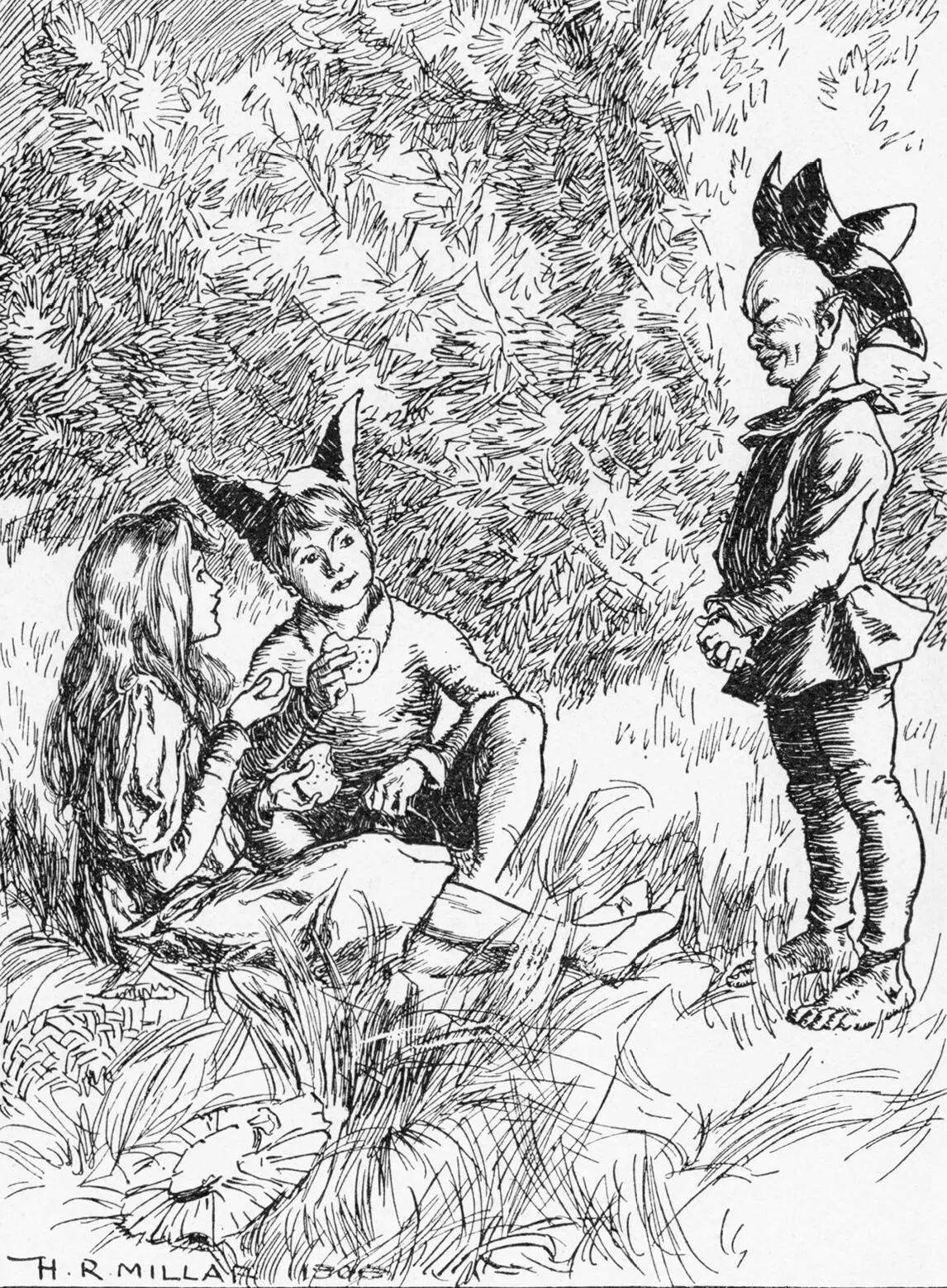
H. R. Millar (1869–1942), illustration from Puck of Pook’s Hill (1906) by Rudyard Kipling (Wikimedia Commons)
Rudyard Kipling was born in Bombay (today Mumbai) in 1862, yet educated back in England, to which he was shipped, at the age of five, by his parents. He spent the next six unhappy years being boarded with a bullying foster family in Southsea, before going on to a military school in Devon, and then returning to India where he worked as a journalist and where his first successes as a writer were to come. This was followed by further spells in London and Vermont where, by this time married, he wrote The Jungle Book . Now famous, he returned once more to Britain, settling in Torquay, and then in Sussex; these wanderings, and his troubled childhood, perhaps go some way to explaining his desire to construct his own mythic version of a history of England, the country in which he was thereafter to remain.
While on a winter visit back to the States in 1899, Kipling, along with his six-year-old daughter, Josephine, contracted pneumonia. Kipling recovered from the illness, though it took him months; his daughter – for whom he had earlier written The Jungle Book and the Just So Stories – was not so lucky. A charming gold-framed pastel drawing of young Josephine hangs in one of the bedrooms of his Jacobean Sussex house, Bateman’s – she looks out of the frame, intent on something unseen – alongside a monochrome photograph that shows the pretty, smiling little girl, then aged three, being held by her doting father.
A hint of this personal tragedy is present, I think, in Kipling’s depiction of the life-affirming Philadelphia in ‘Marklake Witches’. His younger daughter Elsie, the only one of Kipling’s three children to survive him, recalled in her memoir:
There is no doubt the little Josephine had been the greatest joy during her short life. He always adored children, and she was endowed with a charm and personality (as well as an enchanting prettiness) that those who knew her still remember. She belonged to his early, happy days, and his life was never the same after her death; a light had gone out that could never be rekindled.
Читать дальше
